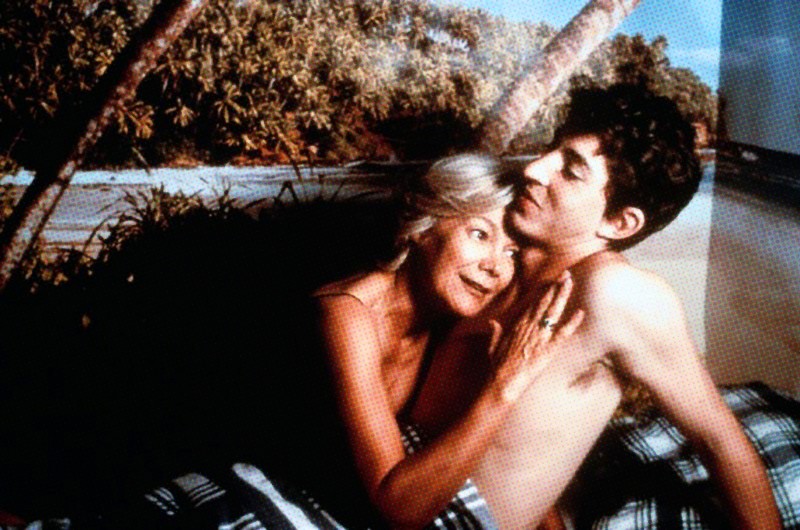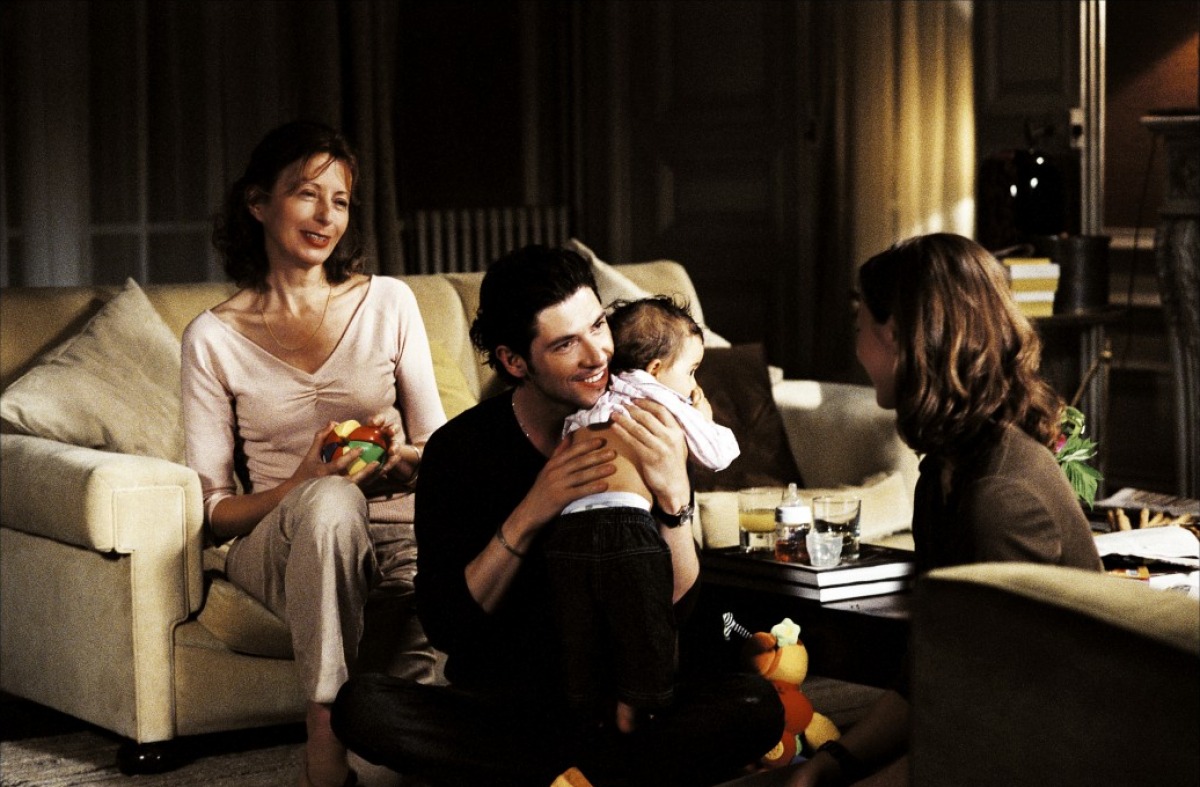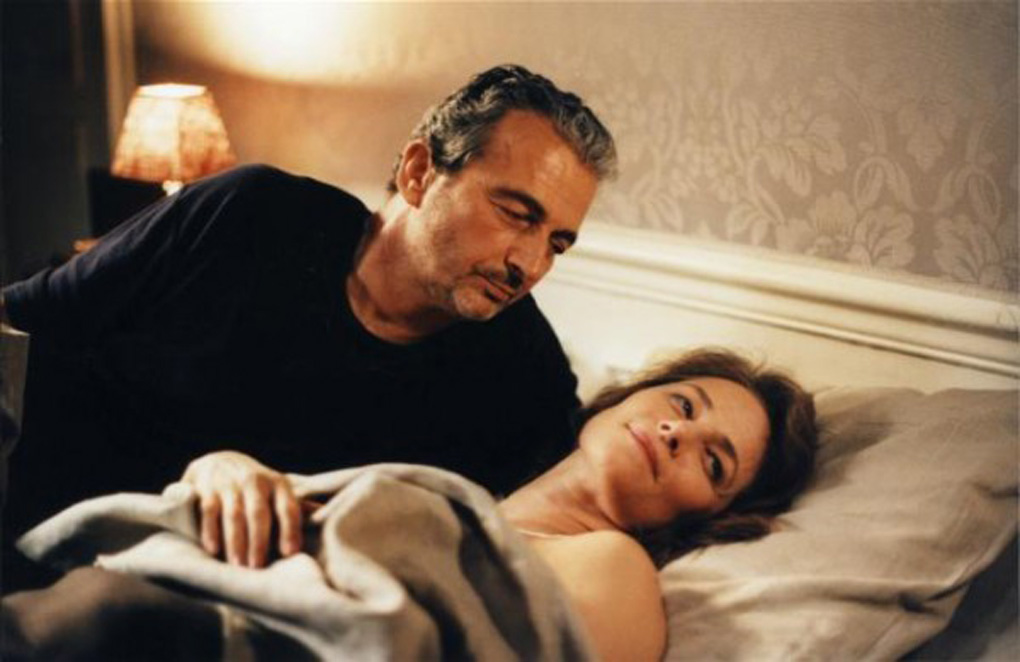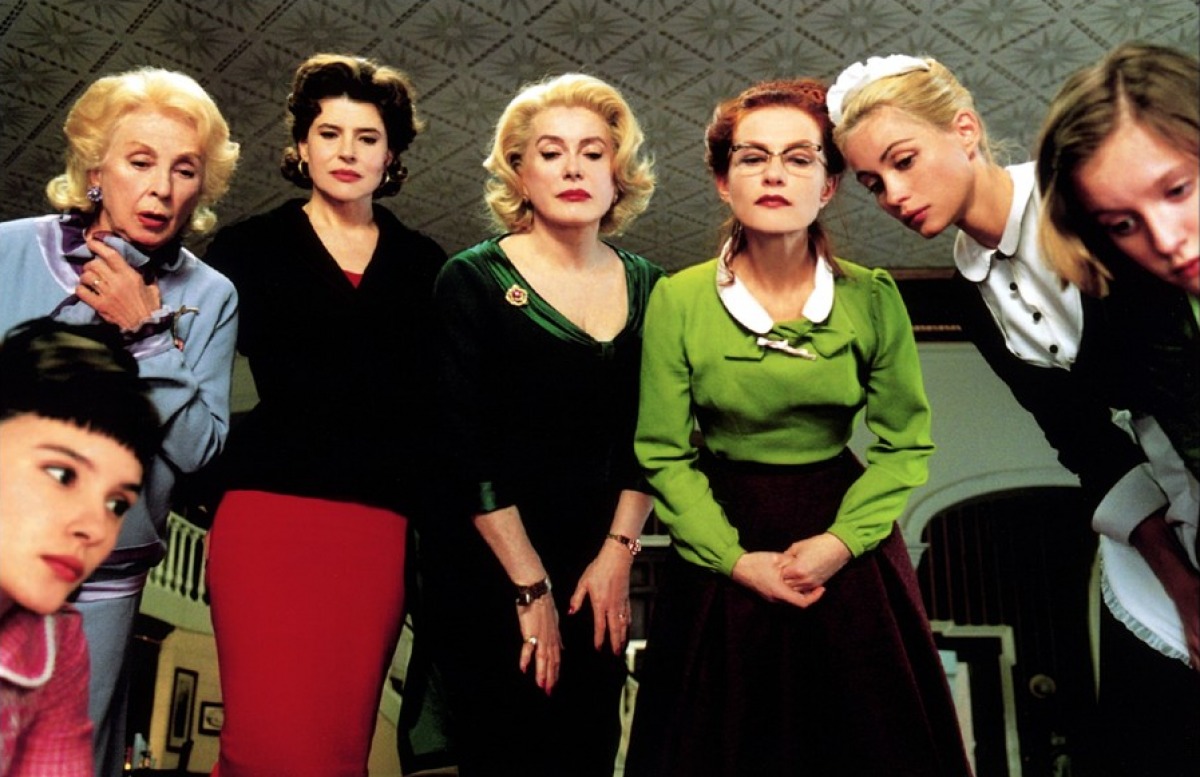5. Sitcom (1998)
Probably Francois Ozon’s most notorious and whacky film to date. The essence of comedy is what constitutes a sitcom in general and that is the main idea here but with a more perverted taste. The film centers around a small white rat that has a full on effect to what one would call a normal living family.
Suddenly incest, homosexuality and sadomasochism is being pronounced in the household. Then an unnerving plan is construed by the family against the father since he ultimately turns into the rat himself after killing and eating it. Ridiculous? Sure in some ways. But entertaining nonetheless! It’s the type of film that should make fans of John Waters proud.
4. Time to Leave (2005)
All the films of Francois Ozon are personal since he’s the one writing them for the most part. But Time to Leave is probably his most personal one. Stating in an interview that he wasn’t sure if he was going to end up being diagnosed with a terminal illness, Ozon explored the storyline for this film. Melvil Poupaud plays the lead role of a photographer finding out he is sick and has limited time to live.
Francois Ozon thought about using AIDS as the illness but decided to stick with Cancer. Poupaud’s character ends up spending his last days breaking up with his boyfriend at home, stalking and photographing his sister with whom he has a complicated relationship with and visiting his grandmother played by legendary French actress Jeanne Moreau who seems to be the only family member he gets along with and can be truthful with.
Poupaud has the option in the film to fight for his life with chemotherapy but decides to deny the treatment since his chances are low. It’s a story about a wandering soul who lived precariously through the success of his career but couldn’t seem to allow himself to find the essential connections he most needed at the end.
The last scene where he lays on the sand at the beach and appears emaciated, is probably one of the most touching scenes ever put on celluloid. It’s a scene without no music where all you hear are the waves and the birds. You see the people slowly leaving in a time lapse fragment. You are left with him alone and a sunset.
3. Under the Sand (2000)
Among many of Francois Ozon’s avid fans, Under the Sand is considered one of his most quintessential films. It’s been stated that Eric Rohmer’s film work has had a major impact on Ozon and this one seems to be a good example where he took that influence and made it his own.
Charlotte Rampling shines in her role as Marie who happens to lose her husband at the beach after he goes in the water. No body is found and it is unsure of what could’ve happened to him. There’s no way to know if he either drowned or actually abandoned her.
This mystery allows her to imagine her husband still being alive and interferes with her chances of moving on in life. Soon this takes a toll on her closest family members and even ruins the chance of a new love. The hope that allows her to hold on to him is simply because she was happily married to him for 25 years.
At the end, you find Charlotte Rampling giving an enigmatic performance that is exceptional in many ways. You just don’t know whether she has finally accepted her husband’s death or is still believing that he is alive somewhere. Regardless, it seems that she has finally made peace with herself and is looking on with a new pair of eyes in life.
2. 8 Women (2002)
Francois Ozon stated he was afraid of feeling overwhelmed by the many different female personalities on the single set. It’s been stated that he is described as a woman’s director so 8 Women should take the cake in that regards!
This is a musical film with dialogue where the songs literally take center stage. The songs are campy but that doesn’t take away from their charm. Each actress is given a song that best suits their role and their demeanor in the film. The colors used in the film is bright and shiny like watching a Disney cartoon from the old days.
The story revolves around a murder mystery that takes place in a big house where all the women are snowed in and are left alone with an apparent muderess that could be any of them. That’s where all the fun begins in the film. There’s a great ensemble that includes Catherine Deneuve, Fanny Ardant, Isabelle Huppert and many others.
The fight scene with Catherine Deneuve and Fanny Ardant that culminates in a more lesbianic manner is something that only Francois Ozon can pull off successfully. It’s probably one of the best musical films in French cinema since The Umbrellas of Cherbourg which Catherine Deneuve ironically starred in as well but with the only difference that 8 Women had actual dialogue.
1. Swimming Pool (2003)
Charlotte Rampling is a frequent collaborator as an actress for Francois Ozon. From Under The Sand, which we’ll get to later on this list, to Angel, she has been an important muse for him. But it’s really in Swimming Pool where their collaboration truly shines! She plays the role of writer Sarah Morton who at first appears very austere but then slowly lowers her guard. She is looking for new inspiration for her next novel and finds it when her publisher’s daughter played by Ludivine Sagnier arrives at the summer house.
Ludivine’s performance and appearance in this film is truly a revelation! She is most unrecognizable having recently seen her in 8 Women the year before. There is suspense and mystery in the story for this film. The relationship between Sarah Morton and Ludivine’s character is complicated as you feel there’s a genuine inner need for each other but because of the circumstances they find themselves in, they are unable to fully trust each other.
That is until a murder is committed and they have no choice. But was there really a murder? Did the events unfold as they appeared realistically? All these are left to be questioned when the film ends. An open end that could only strike gold when all the ingredients fall well in place.
At times you can’t help but wonder if Francois Ozon was, at least, loosely inspired by Jacques Deray’s La Piscine film starring Alain Delon and Romy Schneider when he came up with Swimming Pool.
Author Bio: Martin Del Carpio is a music artist from New York. With the vital help of various music producers, he has been able to record over 5 albums. He is also a huge fan of cinema with the silent era being his all-time favorite.




